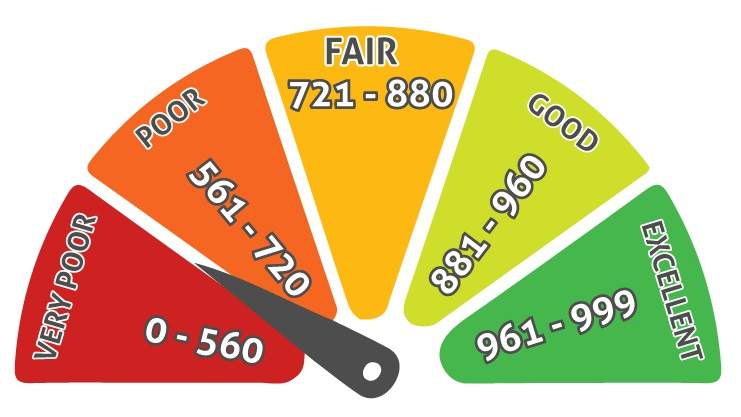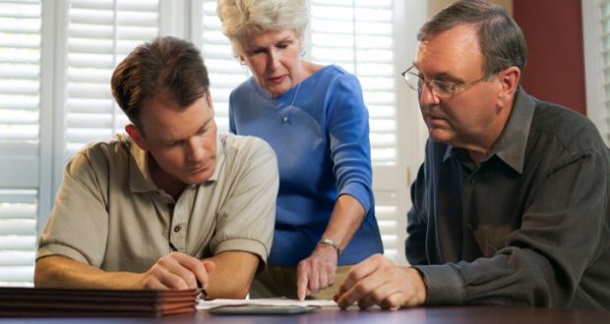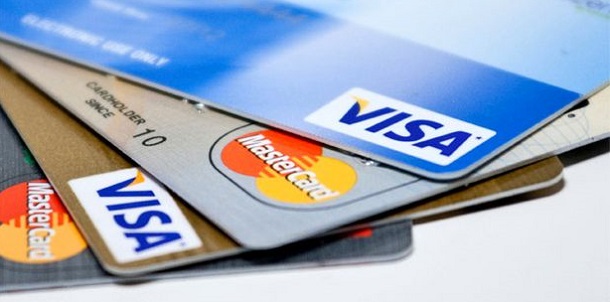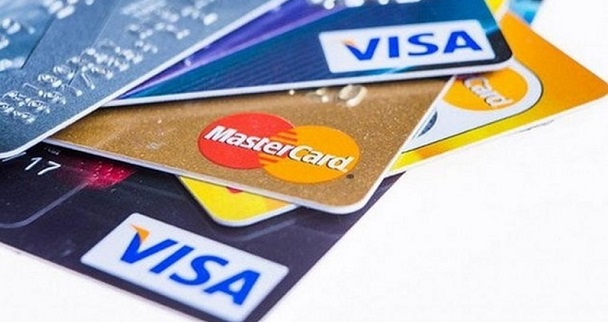
If you’re planning on applying for a loan, mortgage, or credit card, your credit score will have an impact. It will determine whether you are approved and the interest rate you’ll have to pay. The lower your score, the less likely a lender is to loan you money and, if they do, the higher their interest rates are likely to be.
What Is A Good Credit Score?
What counts as a good credit score will depend on which of the three major credit reference agencies your lender uses. Ideally, you don’t want your credit score to be lower than this:
- Callcredit: 4 out of 5
- Equifax: 420 out of 700
- Experian: 880 out of 999
How Is Your Credit Score Calculated?
Each credit reference agency calculates their scores differently but, in general, they look at:
- Making late payments
- Only paying credit card minimums
- Entering an Individual Voluntary Arrangement or being declared bankrupt
- Having a County Court Judgement (CCJ) against your name
- Making multiple credit applications within a short period of time
- When you pay off your credit cards
- Having too much available credit (even if you don’t use it).
Some of these have a greater impact than others. None stay on your credit report forever: late payments are removed after three years and CCJs and bankruptcies after six years. You can request a free credit report here on Lending Expert.
How Do You Improve Your Credit Score?
There are lots of different ways you can improve your credit score, but here we look at seven that you can do straight away, and which should quickly have an impact.
1. Check your credit file
You need to check:
- Your score, so you understand what it is and where you need to get to.
- For any errors that need correcting, including potentially fraudulent activity (these should be raised with the credit reference agency and any lenders immediately).
- If you are linked to another person, e.g. through a joint account or address; if a partner, friend, family or flatmate have bad credit, this can impact your credit score.
All three of the credit agencies will provide free or low-cost copies of your credit score, which you should then check regularly.
2. Make sure you are on the electoral roll
Not being registered to vote will make it harder to get credit. You can register via the post or online, and it’s a quick and easy process that is well worth doing. If you aren’t eligible to vote, e.g. you are a non-EU national, you can ask the credit reference agencies to add proof of residency by sending them a utility bill or a copy of your driving licence.
3. Pay your bills on time
Paying certain bills on time will impact your credit score. Examples of these are your home phone, mobile or internet – basically, you are looking at any bill that has a credit agreement attached to it.
4. Get a credit-building credit card
For those with bad credit or no credit, you may be able to take out a credit-building credit card. These usually have low credit limits and higher rates of interest, reflecting the risk lenders are taking, but by using the card and paying your bills on time, you can quickly improve your credit score. Before you take out a card, make sure you can manage any minimum payment.
5. Don’t keep applying for credit
While it might be worth applying for a credit-building credit card, if you are turned down, try to avoid the temptation to apply for another card straight away. Applying for credit multiple times within a short period can negatively impact your credit rating as it makes lenders think you are desperate for money and won’t be able to pay it back because you are already in debt.
6. Review your existing debt levels
If you have high levels of debt, even if you can make the monthly payments, look at reducing this by increasing payments or consider transferring balances to 0% credit cards, so you aren’t paying off interest but your actual debt.
7. Get free debt advice
If you are struggling to pay your bills, talk to your lenders or organisations such as Citizens Advice who can help you set up payment plans you can meet and avoid negatively impacting your credit score. If you don’t make payments and don’t talk to your lenders, you’re at risk of having a CCJ against your name.
When you’re trying to improve your credit score, there are companies out there that will offer to do this for you. While that might be tempting, the most they can do is review your report and provide advice, which will probably include all of the seven tips we’ve outlined above. You would be much better using any fees they would charge to pay off any debts and improve your credit score yourself, which is entirely do-able, even if it does take time.
If you’re unsure about your credit score and you want to find out you can get a free credit report here on Lending Expert. Check your financial details are up to date and see all your credit agreements and outstanding balances in one place.







